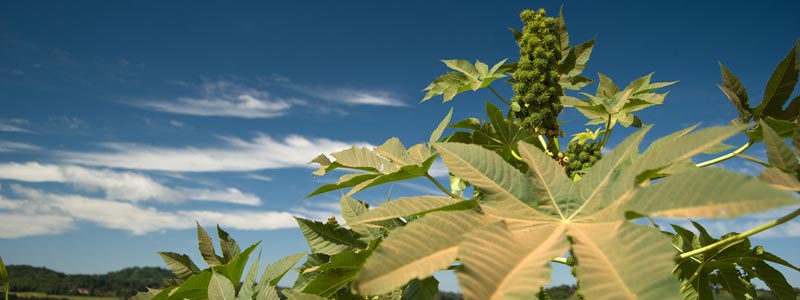
India dominates supply, not prices, in the castor oil export market
 Castor oil is one of raw materials used in the production of biofuel in Brazil
Castor oil is one of raw materials used in the production of biofuel in BrazilWhen it comes to non-edible oil exports by India, castor oil emerges as a top performer due to its wide commercial applications. However, it may surprise some that India is both the world’s largest producer and exporter of castor oil, accounting for around 65% of global production and over 87% of global exports. Castor oil was one of the top 10 items of export to China for two consecutive years in 2012 and 2013, worth around $320 million which is around 35% of India’s total castor oil exports. Increasing applications in China and Brazil are factors behind growing exports of castor oil. According to the Solvents Extractors Association of India (SEA), India’s exports of castor oil and derivatives are estimated at around $800 million. China, Europe, Thailand and Japan are the major destinations for Indian castor oil. From being used as a purgative in India in the past, today castor oil finds use in manufacture of jet engine lubricants, nylon, brake fluids, paints, resins, plastics, telecom, pharma, electronics, and cosmetics. It is also used as a biofuel in countries like Brazil and as manure. According to the International Castor Oil Association (ICOA), it is the only commercial source hydroxyoleic acid, which is used to make several medicines.
 India's castor oil exports. Source - Ministry of Commerce, India
India's castor oil exports. Source - Ministry of Commerce, IndiaGrowing demand in the international market has fuelled castor oil exports, but the domestic sector has not benefitted from India’s leadership and favourable market conditions. It is estimated that while India produces around 800,000 tonnes of castor oil and derivatives, it ships over 60% of the total production to other countries. This leaves the growers and manufacturers at the mercy of international prices, which India does not control, and has led to a decline in production and export in recent years. The National Multi-Commodity Exchange of India (NCME) says in its report that India is just a price taker and not a price setter in the global castor oil market due to its poor infrastructure and lack of value addition. NCME says that India has to import castor oil as formulated products and derivatives at a much higher price of the oil due to lack of manufacturing facilities here. However, NCME says that India has the capability to become a price setter. Encouraging manufacturing of castor oil derivatives and R&D could help India control prices in the international market, check price volatility, fetch better returns for farmers and also reduce dependency on imports.
This article was published on December 5, 2014.






 to success.
to success.